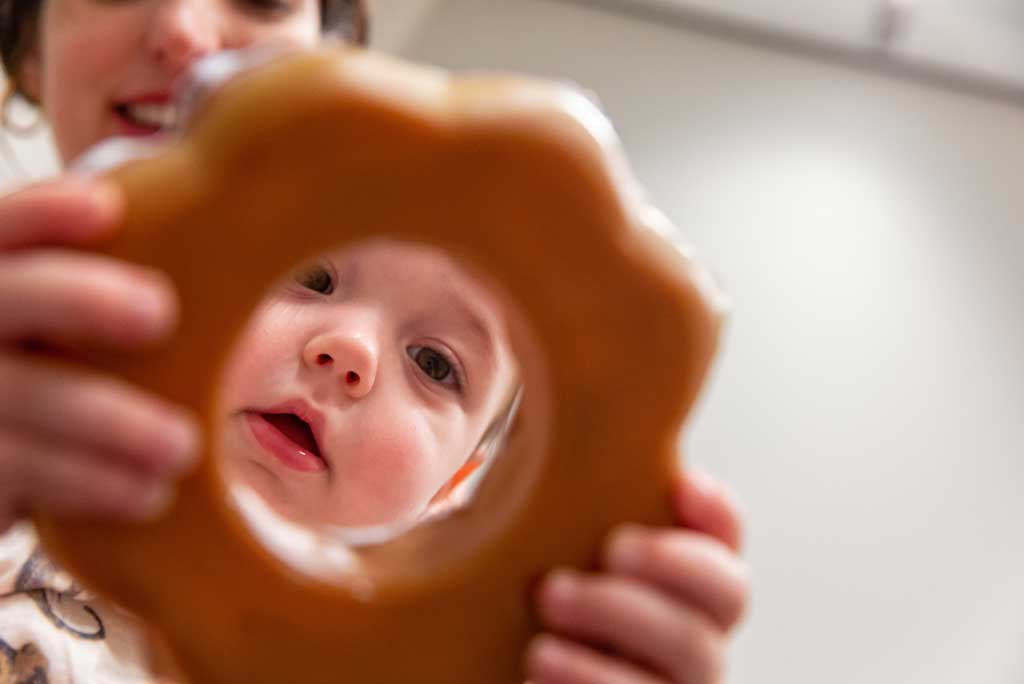Young children develop with breathtaking speed. Newborns seem utterly helpless, but not even a year later they have turned into happy, boisterous toddlers who love to play peek-a-boo and say their first words. How is that possible? We investigate how babies explore their environment and how it is possible that they learn so many new things in such a short amount of time.
Curious babies
Recently we found that babies of only a couple of months old are already very curious and mainly look for stimuli from which they can learn something new1. Today, we are exploring the role of curiosity, the urge to keep learning something new, in children’s development. In addition to the mechanisms and brain processes underlying curiosity, we study whether children differ in their level of curiosity. In our latest studies, we aim to understand how to stimulate curiosity and learning in babies.


Learning from one another
We also want to understand how parents and caregivers manage to playfully teach their babies new things and focus their babies’ attention on what is important. Imagine teaching a one-year-old how to use a new toy that can make a rattling sound when shaken. How would you do that? You would probably show it first, so that the baby can imitate you later. Interestingly enough, you wouldn’t just make the move as you would show it to another adult. When adults teach a young child, they adapt their movements in a smart way. They repeat their demonstrations more often, show the exciting effect of the to-be-learned action, or sometimes make larger or slower movements2,3. These kinds of adjustments can be registered precisely. The influence of these adjustments on the baby’s action learning can also be measured. This will help us understand which combination of adult cues, and which patterns of interaction between the child and the adult, lead to optimal learning.
Read more?
- Poli, F., Serino, G., Mars, R. B., & Hunnius, S. (2020). Infants tailor their attention to maximize learning. Science advances, 6(39), eabb5053.
- van Schaik, J. E., Meyer, M., van Ham, C. R., & Hunnius, S. (2020). Motion tracking of parents’ infant‐versus adult‐directed actions reveals general and action‐specific modulations. Developmental science, 23(1), e12869.
- Schreiner, M. S., van Schaik, J. E., Sučević, J., Hunnius, S., & Meyer, M. (2020). Let’s talk action: Infant-directed speech facilitates infants’ action learning. Developmental Psychology, 56(9), 1623.